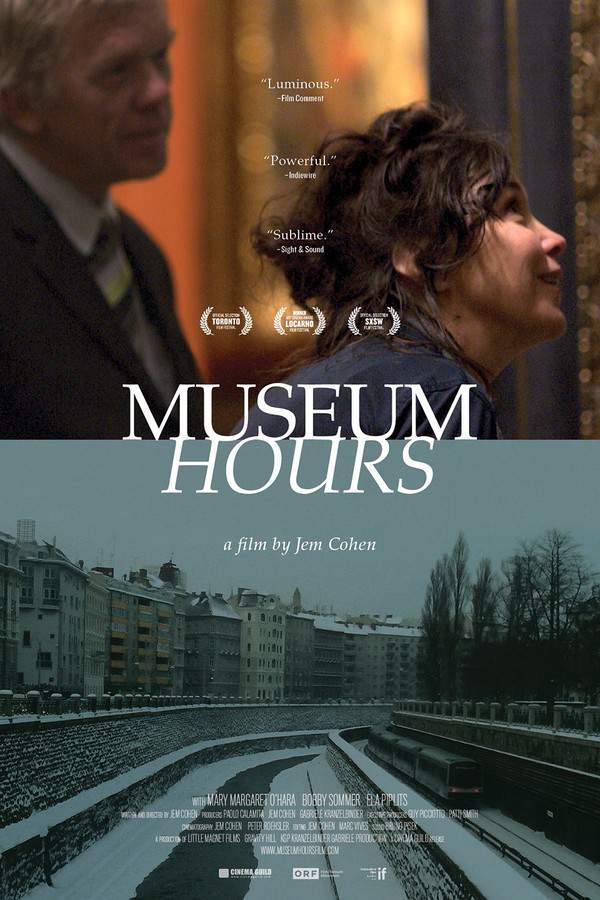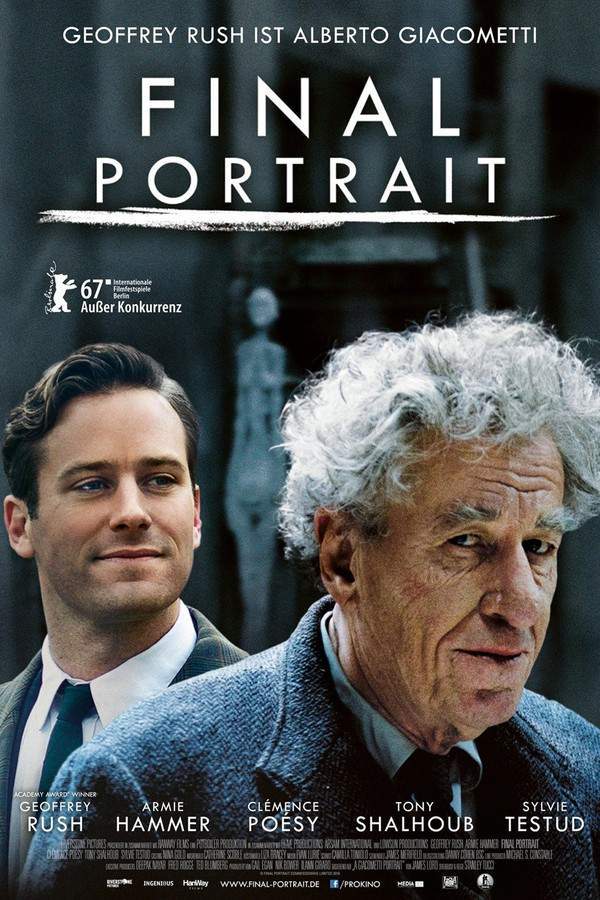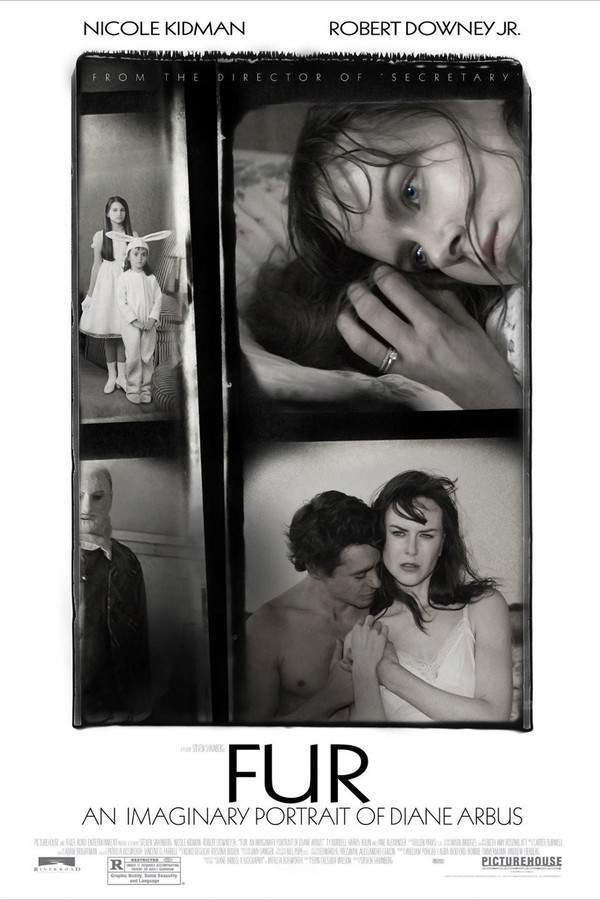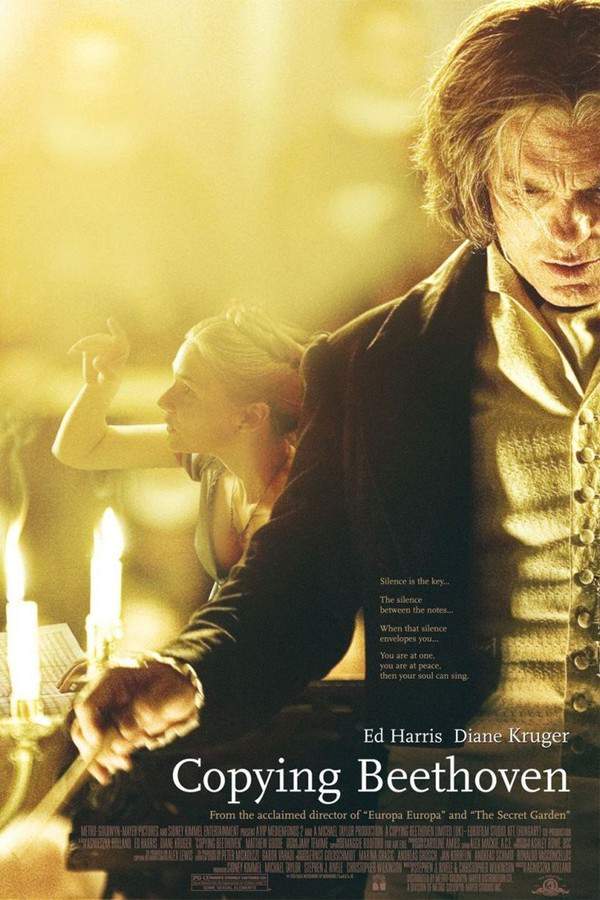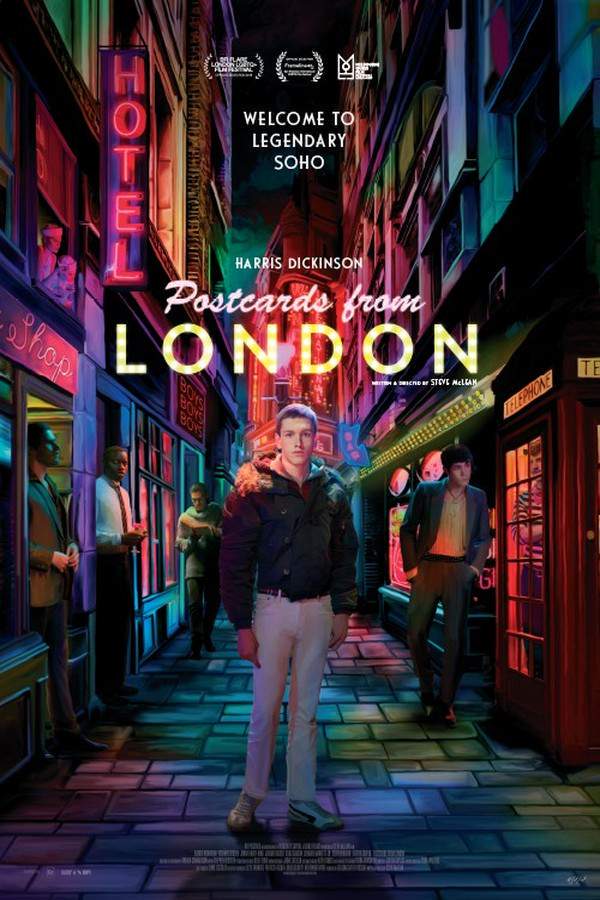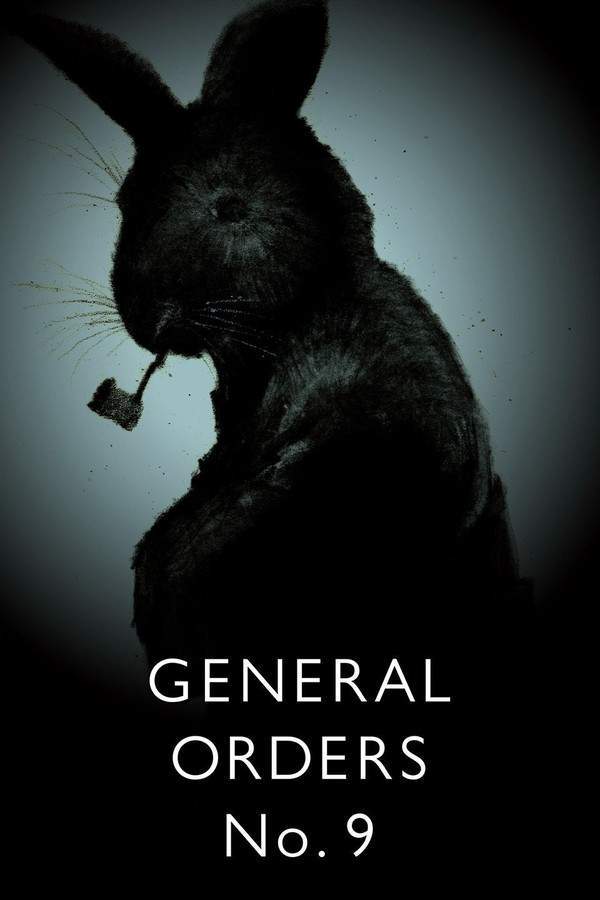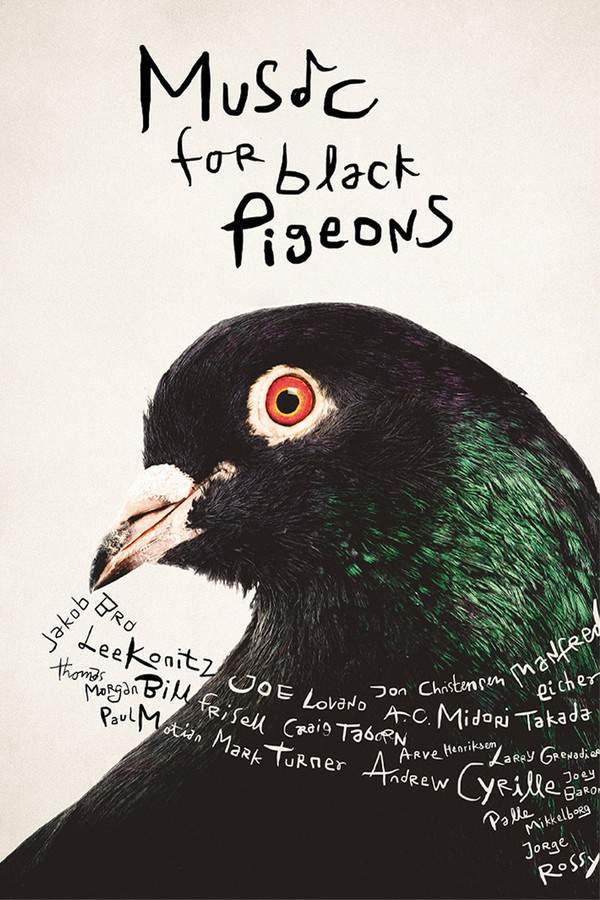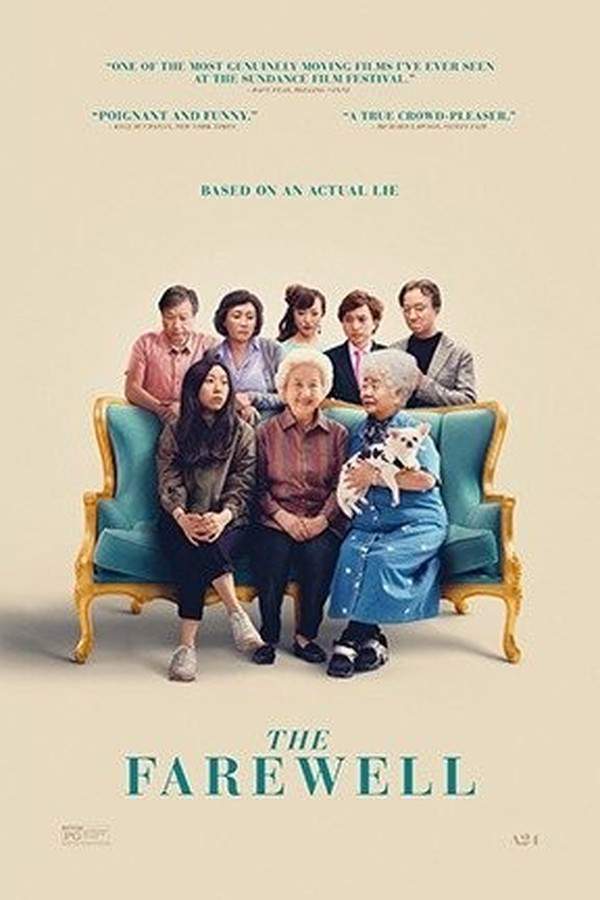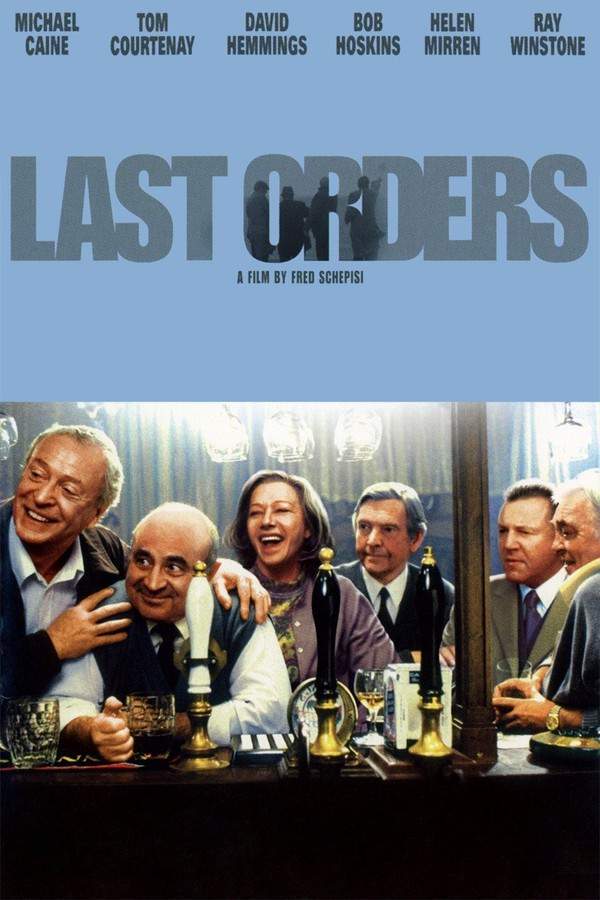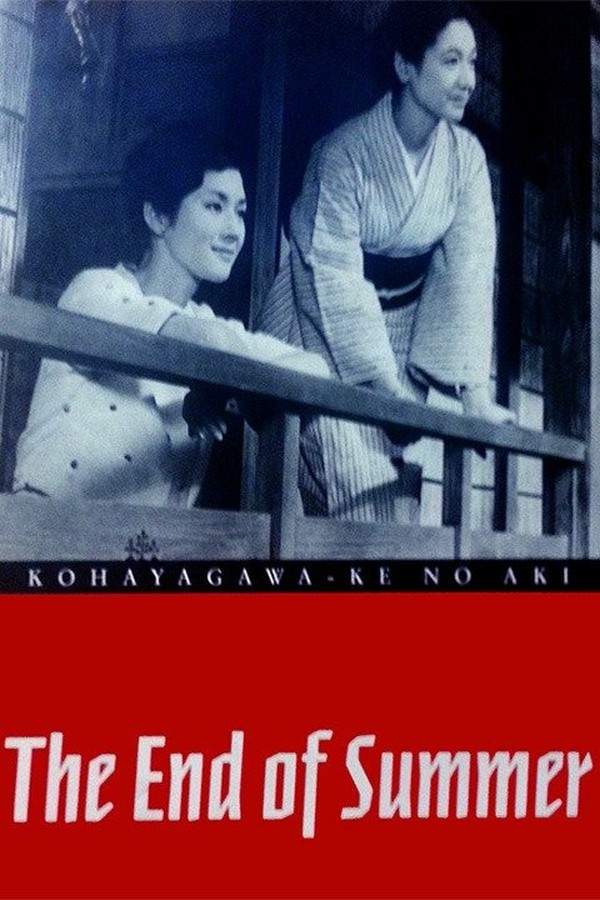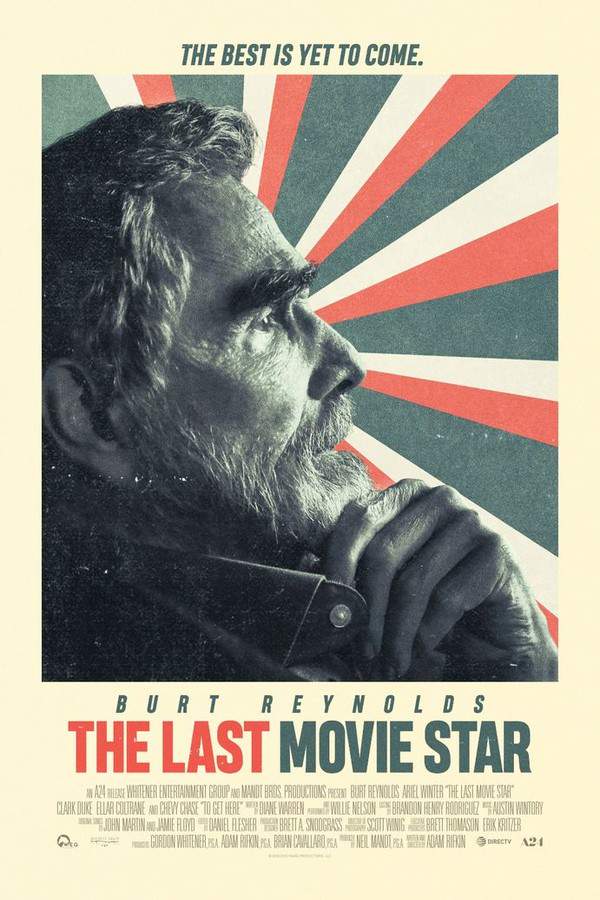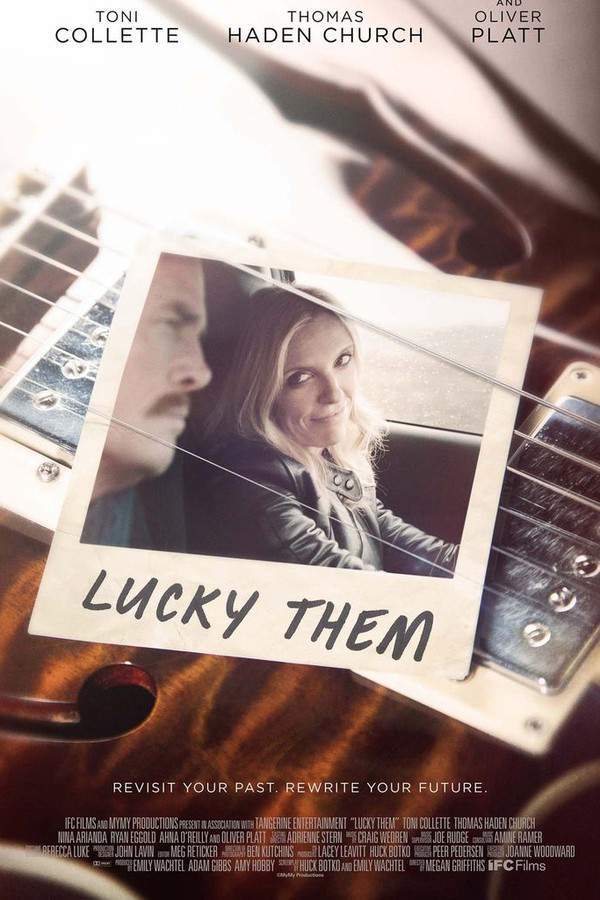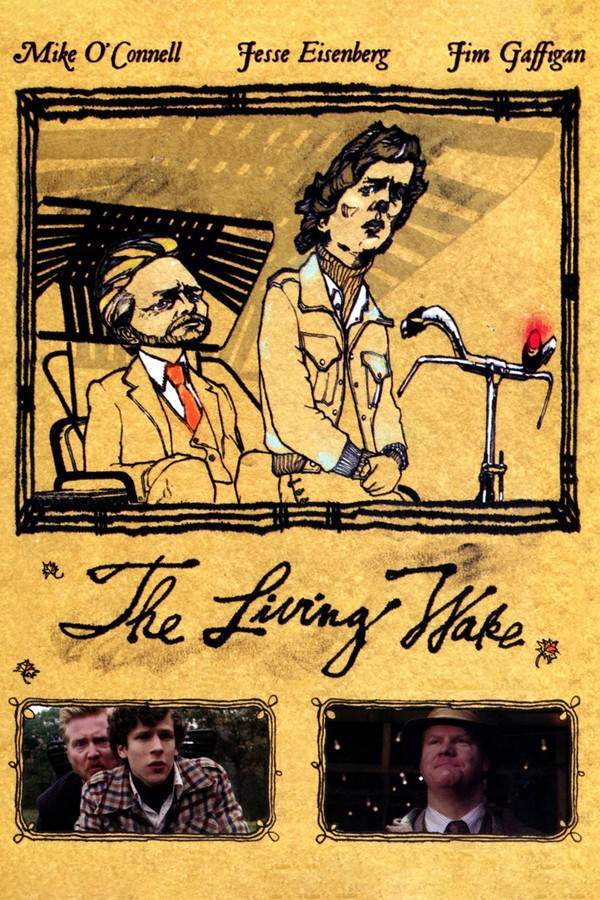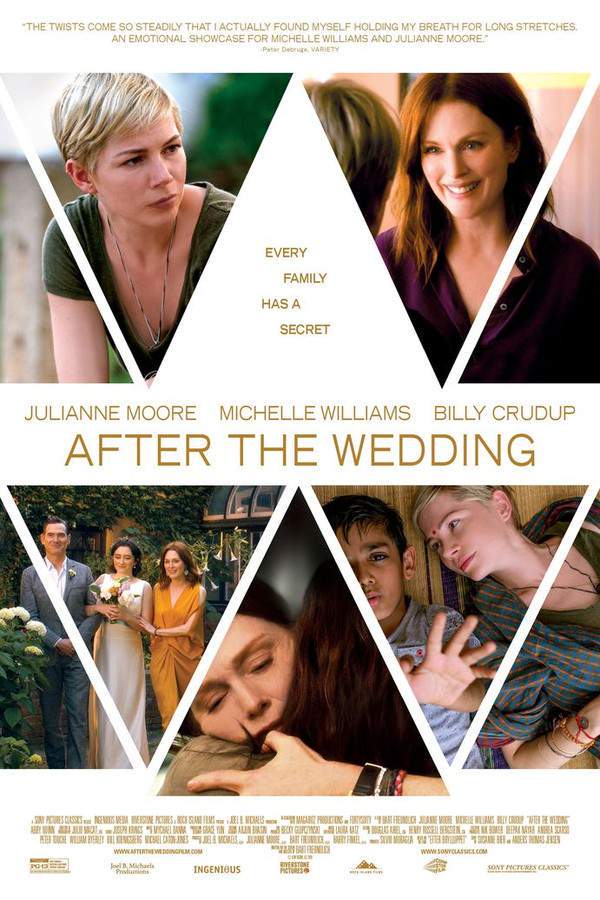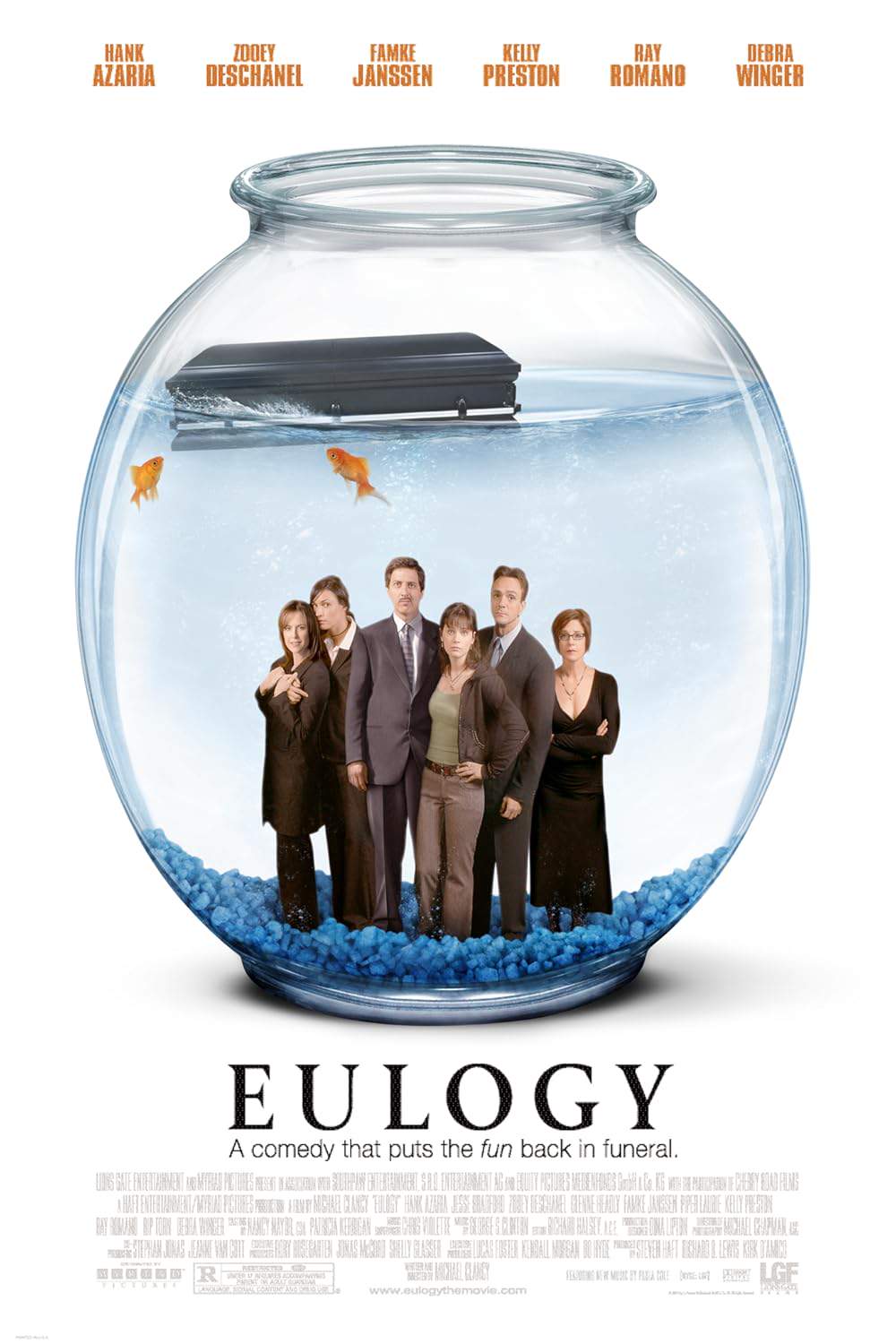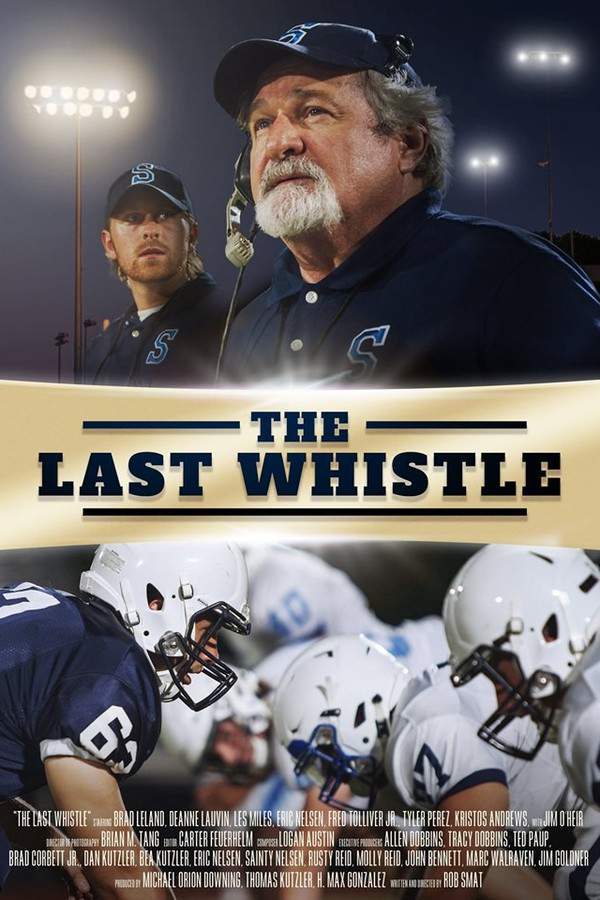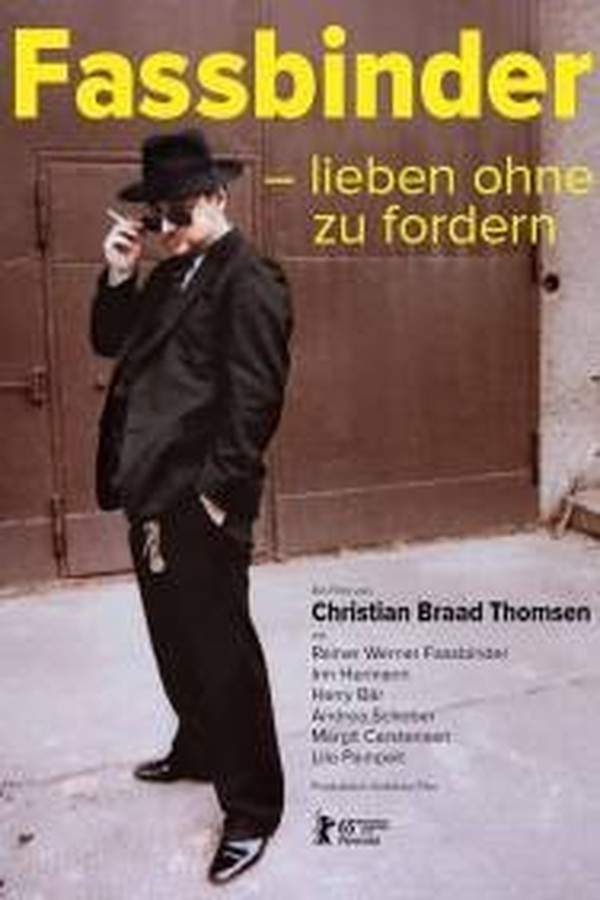
Fassbinder: To Love Without Demands
Year: 2016
Runtime: 109 min
Director: Christian Braad Thomsen
This documentary explores the life and work of filmmaker Rainer Werner Fassbinder through interviews filmed by Braad Thomsen in the 1970s. Viewers gain a unique insight into Fassbinder’s creative process and his perspectives on love, filmmaking techniques, and the challenges of living a full and expressive life. The film reveals the complexities of his artistic vision and personal philosophies.
Warning: spoilers below!
Haven’t seen Fassbinder: To Love Without Demands yet? This summary contains major spoilers. Bookmark the page, watch the movie, and come back for the full breakdown. If you're ready, scroll on and relive the story!
Fassbinder: To Love Without Demands (2016) – Full Plot Summary & Ending Explained
Read the complete plot breakdown of Fassbinder: To Love Without Demands (2016), including all key story events, major twists, and the ending explained in detail. Discover what really happened—and what it all means.
Danish film director Christian Braad Thomsen found a deep friendship with renowned filmmaker Rainer Werner Fassbinder (1945-82), which began when they met at the Berlinale in 1969, where Fassbinder presented his debut film, Love is Colder Than Death. This documentary offers a unique glimpse into their relationship, featuring extensive interviews recorded in the 1970s that have remained unpublished until now. The emotional weight of the film is further enhanced by a poignant tape recording made shortly after Fassbinder’s untimely passing, which captures his mother, Lilo Pempeit, reflecting on his remarkable upbringing amidst the ruins of post-war Germany.
Additionally, the documentary includes new insights from actress Irm Hermann, who was among the first to recognize Fassbinder’s talent. Their friendship blossomed during a time when he was virtually unknown but held extravagant aspirations of working in Hollywood. Irm was a steadfast ally, nurturing his ambitious dreams. The film also features actor and producer Harry Bär, who recounts his last conversation with Fassbinder mere hours prior to his death, as they envisioned a new film project inspired by Joachim Witt’s song, Ich bin das Glück dieser Erde.
One of the more intimate narratives comes from Andrea Schober, who portrayed child roles in Fassbinder’s early works. Their bond was deeply emotional, as both sought fill the voids in their lives—Fassbinder yearning for a paternal connection, while Andrea sought a father figure. Each segment of the documentary is beautifully interwoven with Thomsen’s personal memories that celebrate his extraordinary friendship with Fassbinder.
Fassbinder stands out as one of the most prolific directors in cinema history, remarkable for having produced an astounding 60 films in just 14 years for both theaters and television. Initially emerging as an avant-garde filmmaker, he ultimately achieved global acclaim without compromising his vision. His work serves as a powerful visual representation of 20th-century German history, capturing the tumultuous transition from the Weimar Republic to the societal upheavals of the 1970s. A defining aspect of his films is the profound exploration of how historical events shape individual lives.
In this portrait, Thomsen delves into Fassbinder’s creativity, seeking to comprehend how his distinctive childhood influenced his artistic expression. Growing up with numerous surrogate parents, who were primarily refugees, he often found himself alone as these figures came and went. This isolation led Fassbinder to spend more time in cinemas than in schools. In front of Thomsen’s camera, he candidly discusses various facets of his life, including his fascination with post-war Hollywood, psychoanalysis, love, marriage, parenthood, and the madness of existence. The sentiment encapsulated in the title of his debut film, Love is Colder than Death, resonates throughout his body of work, ultimately revealing a love that transcends mortality among those drawn to him.
Through this compelling documentary, Christian Braad Thomsen strives to unravel the complex contradictions that defined Fassbinder, reflecting on a film interview conducted just hours before his passing, where he shared a thought-provoking insight: > “To be complete, you need to double yourself.”
Last Updated: May 12, 2025 at 07:04
Explore Movie Threads
Discover curated groups of movies connected by mood, themes, and story style. Browse collections built around emotion, atmosphere, and narrative focus to easily find films that match what you feel like watching right now.
Movies like Fassbinder: To Love Without Demands about complex artists
Reflective films that explore the triumphs and tragedies of a creator's life.If you were captivated by the reflective and melancholic portrait of Rainer Werner Fassbinder, you'll find similar stories in this collection. These movies explore the lives of complex artists, filmmakers, and writers, using interviews and archival footage to build an intimate, bittersweet look at creative genius and its personal toll.
Narrative Summary
These stories typically unfold through a non-linear or reflective structure, weaving together personal accounts, creative works, and historical context. The narrative often centers on the contradictions within the artist—their brilliance alongside their flaws—and the impact of their work and life on those around them, culminating in a reflection on their enduring legacy.
Why These Movies?
Movies are grouped here for their shared focus on biographical exploration, their melancholic and reflective tone, and their intimate pacing that allows for a deep character study. They all grapple with themes of creation, legacy, and the personal sacrifices often tied to great artistic achievement.
Bittersweet films about legacy and remembrance like Fassbinder: To Love Without Demands
Stories that look back on a life, balancing loss with the enduring impact left behind.Fans of the bittersweet reflection on Fassbinder's life and legacy will appreciate these movies. They similarly explore themes of grief, friendship, and the lasting impact a person leaves behind, often using personal memories and interviews to build a poignant narrative that is both sad and celebratory.
Narrative Summary
The narrative structure is often built from memories and testimonies, piecing together a life from fragments of the past. The journey is one of reconciliation for the audience and the subjects, moving from a sense of loss toward an acceptance and celebration of an enduring influence, resulting in a emotionally complex, bittersweet conclusion.
Why These Movies?
These films are connected by their central theme of examining a legacy after a death or significant ending. They share a specific emotional mix of sadness and hope, a reflective and often slow pacing, and a focus on how personal relationships and creative output can transcend a life cut short.
Unlock the Full Story of Fassbinder: To Love Without Demands
Don't stop at just watching — explore Fassbinder: To Love Without Demands in full detail. From the complete plot summary and scene-by-scene timeline to character breakdowns, thematic analysis, and a deep dive into the ending — every page helps you truly understand what Fassbinder: To Love Without Demands is all about. Plus, discover what's next after the movie.
Fassbinder: To Love Without Demands Timeline
Track the full timeline of Fassbinder: To Love Without Demands with every major event arranged chronologically. Perfect for decoding non-linear storytelling, flashbacks, or parallel narratives with a clear scene-by-scene breakdown.

Characters, Settings & Themes in Fassbinder: To Love Without Demands
Discover the characters, locations, and core themes that shape Fassbinder: To Love Without Demands. Get insights into symbolic elements, setting significance, and deeper narrative meaning — ideal for thematic analysis and movie breakdowns.

Fassbinder: To Love Without Demands Spoiler-Free Summary
Get a quick, spoiler-free overview of Fassbinder: To Love Without Demands that covers the main plot points and key details without revealing any major twists or spoilers. Perfect for those who want to know what to expect before diving in.

More About Fassbinder: To Love Without Demands
Visit What's After the Movie to explore more about Fassbinder: To Love Without Demands: box office results, cast and crew info, production details, post-credit scenes, and external links — all in one place for movie fans and researchers.

Similar Movies to Fassbinder: To Love Without Demands
Discover movies like Fassbinder: To Love Without Demands that share similar genres, themes, and storytelling elements. Whether you’re drawn to the atmosphere, character arcs, or plot structure, these curated recommendations will help you explore more films you’ll love.
Explore More About Movie Fassbinder: To Love Without Demands
Fassbinder: To Love Without Demands (2016) Scene-by-Scene Movie Timeline
Fassbinder: To Love Without Demands (2016) Movie Characters, Themes & Settings
Fassbinder: To Love Without Demands (2016) Spoiler-Free Summary & Key Flow
Movies Like Fassbinder: To Love Without Demands – Similar Titles You’ll Enjoy
Fassbinder’s Women (2000) Story Summary & Characters
Rainer Werner Fassbinder, 1977 (2005) Film Overview & Timeline
Notes on the Making of ‘Berlin Alexanderplatz’ (1980) Movie Recap & Themes
Rainer Werner Fassbinder: Last Works (1982) Spoiler-Packed Plot Recap
The Wizard of Babylon (1982) Movie Recap & Themes
The Making of Fanny and Alexander (1984) Plot Summary & Ending Explained
Portrait: Werner Herzog (1986) Complete Plot Breakdown
Wim Wenders, Desperado (2020) Movie Recap & Themes
End of the Commune? (1970) Full Summary & Key Details
The Desire to See a Film of Rainer Werner Fassbinder (1993) Complete Plot Breakdown
The Film in the Film (1924) Full Movie Breakdown
François Truffaut: The Man Who Loved Cinema - Love & Death (1996) Ending Explained & Film Insights
Tranceformer: A Portrait of Lars von Trier (1997) Full Summary & Key Details
Life, Love & Celluloid (1998) Complete Plot Breakdown
I Don’t Just Want You to Love Me (1992) Story Summary & Characters



